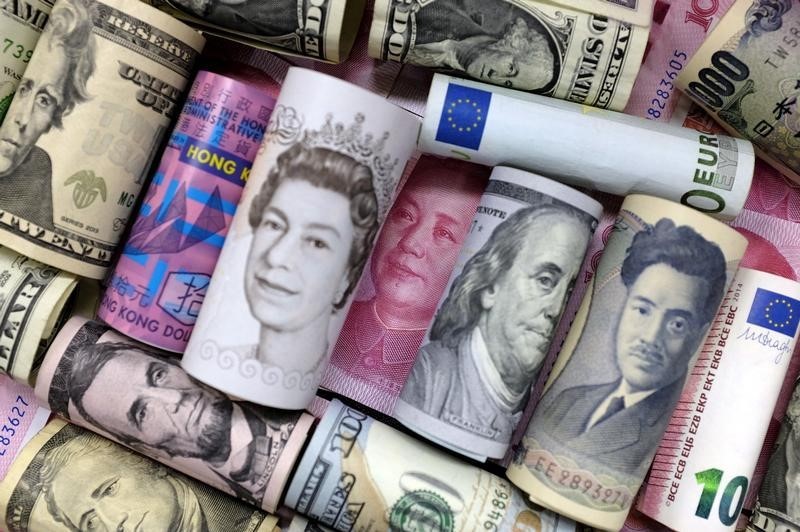By Patrick Graham
LONDON (Reuters) - The dollar sank against other major currencies on Thursday, falling almost 2 percent to a three-week low against the yen, after a Federal Reserve meeting left markets convinced that U.S. interest rates would not rise anytime soon.
The U.S. currency extended losses from Wednesday to trade at 111.675 yen as trading in European markets gathered pace, down 0.7 percent since trading closed in New York.
It fell more than 1 percent to its lowest in more than 8 1/2 months against the Australian dollar
The yen is now backed by the biggest speculative positioning for further gains since the 2008 financial crisis drove it below 100 to the dollar. Some analysts say it may reach that level again.
"We've only seen long positions like this twice in the last 15 years, and both times we've seen big rallies in the yen," said Neil Mellor, currency strategist with Bank of New York Mellon (NYSE:BK) in London.
"I do think that monetary policy in Japan has come to its useful end. Rates-wise, there's a vacuum until we hit 109 yen, beyond that it's the 105s. I certainly would not exclude this ends with a fall below 100 yen per dollar."
The Fed said it now expects two quarter-point rate cuts this year, not four. Moderate growth and strong job gains will allow it to raise rates this year, the policymakers said, but the U.S. economy faces risks from an uncertain global outlook.
That was enough to dispel any expectations rates would rise in either April or June. The dollar index fell to its lowest in a month in Asian trading, at 95.424. (DXY)
None of that disproves the argument that has supported the dollar for two years: that U.S. interest rates will rise more and remain higher than rates in Japan and the euro zone.
The market's two biggest euro bears, Deutsche Bank (DE:DBKGn) and Goldman Sachs (NYSE:GS), are sticking to forecasts the dollar will reach parity with the single currency this year. Others still expect it to strengthen from here.

"Ultimately... the Fed (should be) in a position to hike rates again," analysts from French bank Credit Agricole (PA:CAGR) said. "This should mean that the longer-term risks for USD should be on the upside as it becomes even more attractive investment currency."